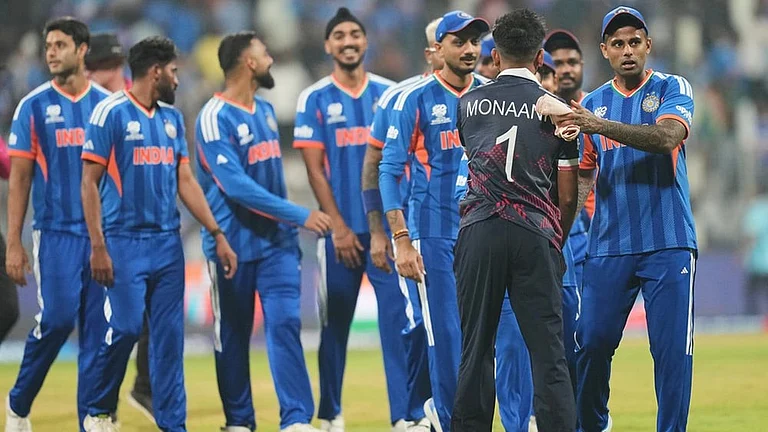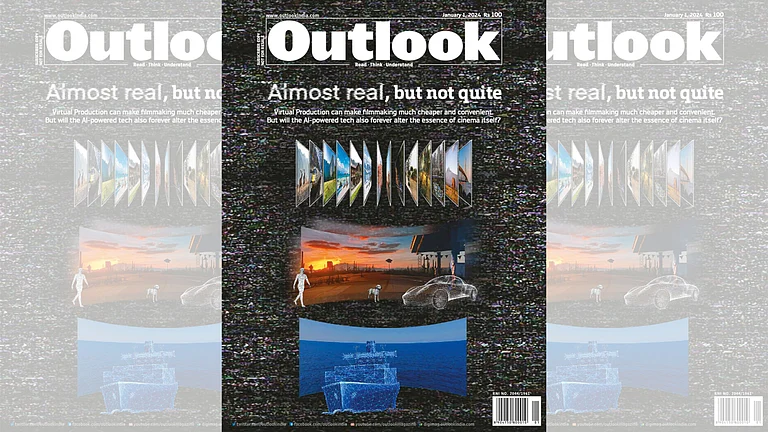Nineteen-years-old Rini (name changed) from Kolkata, a paraplegic, had great expectations from the metaverse. With her ailment rendering the lower half of her body immobile, Rini had always dreamed of running. And in the realm of virtual reality, it seemed possible to make her dream come true. Her joy, however, didn’t last long.
“Having virtual legs is not enough to be able to run when you get attacked,” she recalls.
Last Valentine’s Day, Rini had a virtual date. She used a popular dating app promising “safe and magical dates via virtual reality” to match with another avatar. They met at a virtual park.
“At first, it was good, but then he began to touch my avatar inappropriately,” Rini recalls. Rini quickly exited, but it wasn’t before the date groped her avatar in her private parts and subjected her to verbal harassment.
“It’s funny how I couldn’t think of using my avatar’s legs to run away or kick in the metaverse because that could not have been my own natural response. That’s how real it feels,” says Rini, who never reported the incident to the dating app or any cybercrime authorities. She is wary of the metaverse now. When asked why she never reported the incident, she says, “People have a hard time believing sexual violence in real (life), I don’t think virtual molestation would be considered a real thing.”
It nevertheless is, and incidents like the one Rini faced, are being increasingly reported from the metaverse, which is understood to be a shared, immersive, persistent, 3D virtual space accessible to humans through avatars or virtual personas.
Virtual reality allows users to experience life in ways that they otherwise could (or would) not. When it comes to dating, the metaverse offers diverse options, including immersive dating experiences. Apps like Flirtual, Nevermet, and Planet Theta, offer exclusive virtual reality dating services that users can use to match with dates whom they can then proceed to meet in virtual venues in the metaverse.
These dating apps offer immersive date experiences like moonlit walks by the beach, cozy cafe sessions, or watching a movie. Flirtually even offers dates where users can “feel the grass” together or “observe a black hole”, all while sitting in their own homes hundreds of miles apart. The novelty of the experience often hides the complexity of the technology that renders these moments possible.
In 2021, Patel shared her own experience of sexual assault in the metaverse. Within a minute of being on Facebook Horizon Venues, her avatar was mobbed by four male avatars who verbally and physically harassed her. “It was, essentially, a virtual gang-rape,” she said at the time. Her virtual attackers had yelled at her, “Don’t pretend you didn’t love it,” and took photos of her avatar as she tried to get away.
“The intensity of experiences in the metaverse can mirror the emotions felt in the physical world due to the immersive nature of these environments. This can lead to real trauma and psychological distress, akin to those experienced in physical assaults,” Patel tells Outlook.
Earlier this year, a 16-year-old girl from the United Kingdom reported being virtually gangraped while playing a game using a VR headset in the metaverse. Her avatar was raped by other male avatars. While the girl did not report any physical harm, police in the UK are now investigating the matter. UK Home Secretary James Cleverly even added that “it is easy to dismiss this as not being real, but the whole point of these virtual environments is they are incredibly immersive”.
So much so that dating apps offer tactile experiences like “touching grass”. It does not just stop at touching grass. Metaverse technologies offer a way to explore sexuality through highly realistic experiences and include augmented sex in the real world or sex with a virtual partner in the metaverse. Bengaluru-based dating coach Simran Mangharam feels that virtual dating experiences can be good for people who are hesitant about dating or feel social anxiety when speaking to potential mates. But the whole point of dating is to ultimately meet and interact in the ‘real world’.
“Virtual reality allows one to put out a persona, a version of themselves that they perhaps are unable to show in the real world for whatever reason, to attract a certain kind of mate. But in time, a person’s real self will show in the virtual world, just like in the real world,” Mangharam adds.
The high level of immersivity these spaces offer, Mangharam says, makes it imperative for newer definitions of sexual harassment and consent to be couched. “Think of it this way: you realise that the person you were virtually dating and consented to have sex with has turned out to be an impostor. Would you still say you consented to the sex?” Mangharam asks. One of her clients has been fighting a similar case in court against a man she met online and had intercourse with, only to find out later that the man had lied about his entire identity.
Zara Rebello, a cosplayer and gamer from Bengaluru, says that VR spaces often perpetuate “rape culture” and are “generally sexist and anti-woman or anti-LGBTQIA”. “One does not have to be on a romantic platform to get propositioned by male avatars who can easily molest female or queer avatars physically or verbally. Catfishing is also very real,” she states.
Perhaps equally debilitating to the abuse itself (or even worse) is the disbelief and shaming that victims have to endure if they do decide to speak up. Like Rini, who chose silence, doubting anyone would believe her. Nina Jane Patel’s 2021 post described the dismissive reactions to her ordeal: “don’t be stupid, it wasn’t real”, “a pathetic cry for attention”, “avatars don’t have lower bodies to assault”.
When it comes to prevention and action against sexual abuse, VR presents a complex landscape and there is a pressing need for a legal framework that considers the unique aspects of the metaverse.
“Traditional laws are grounded in physical interactions, but the metaverse blurs these boundaries, raising questions about jurisdiction, enforceability and the very definition of crime and personal violation,” says Patel, who has been working to make the metaverse safer for children.
For example, if an assault occurs in a virtual environment, the legal system must grapple with the nature of the offence. Is it akin to physical assault, harassment, or something entirely new?
This involves rethinking concepts of personal safety, consent and privacy. “We need to ensure that laws are adapted or created to protect users in these spaces without stifling the innovation and freedom that make the metaverse compelling,” says Patel.
MORE FROM THIS ISSUE
While the metaverse opens up new worlds of interaction and experience, it also necessitates a thoughtful approach to its potential human impact. In a remote, digitised world, the metaverse can be a transient antidote to loneliness. This also calls for an evolved understanding of human rights, personal safety and mental well-being in the digital realm, along with legal structures that can adapt to these novel challenges.































